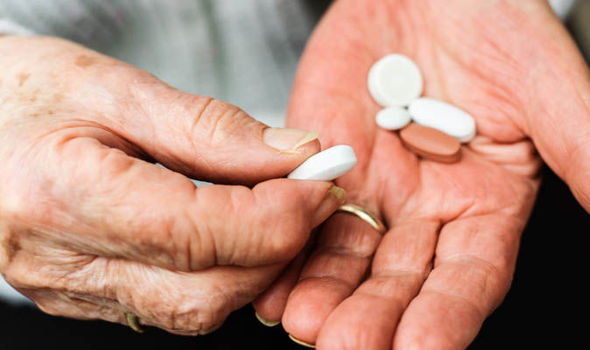StatinWISE in the news
Article from the Express, 15th May 2016
A £1MILLION trial of the controversial heart drugs statins is to be paid for by the Government following concerns over their safety.
The news comes as separate research, uncovered by the Sunday Express, shows doctors have been overestimating the risk of heart attacks and strokes in patients and prescribing the drugs to those who do not need them.
The trial, funded by a grant from the National Institute of Health Research, comes after doctors have warned that the side-effects of the drugs, which include severe muscle pain, depression, fatigue, diabetes, impaired memory and stroke, outweigh the benefits in some patients.
Statins are the most commonly prescribed treatment in the UK and recent recommendations increased the number of those eligible to take the drugs to around one in four adults or 12 million people.
The launch of the new study, which will examine the risk of muscle pain and is co-ordinated by the London School of Hygiene and Tropical Medicine, has been welcomed by experts.
Professor Jane Armitage, an expert in public health medicine at the University of Oxford, is a key researcher for the trial.
She is confident that statins do not increase the risk of muscle pain in most patients and believes side-effects of the drugs are rare.
She said: “We are very anxious about adverse publicity on statins. We feel it is having an adverse effect by stopping high-risk patients from taking their drugs, which could have fatal consequences. The evidence suggests statins are safe and undoubtedly reduce the risk of heart attacks and stroke.”
The British Heart Foundation also believes statins are safe.
However, cardiologist Dr Aseem Malhotra disagrees. “I have no doubt millions of people taking statins in the UK will not benefit but are being put at risk of unnecessary harm,” he said.
Professor Klim McPherson, a public health expert at Oxford University, said muscle pain was reported by many patients but industry-sponsored trials had “not yet measured or assessed this side-effect properly”. He said he suffered crippling pain while on the drugs three years ago.
“I just couldn’t get down the stairs. I put it down to old age but when I came off the drugs the pain disappeared.”
Dr Malcolm Kendrick, who has studied heart health and is a critic of statins, said he has seen well over 100 patients with life-changing side-effects linked with the drugs.
He added: “Why is the Government’s National Institute of Health Research spending a million pounds looking at the harms of these drugs when we have been reassured by industry-supported scientists that side-effects are vanishingly rare?”
The trial will involve 200 patients who have stopped or want to stop using statins due to muscle pain or fatigue and will assess whether muscle problems are more common in statin users than those taking a dummy drug.
The launch of the trial comes as new research concludes the widely used risk calculator that decides a patient’s chance of heart attack, both in America and the UK, overestimates the risk by up to three times.
This research, published by the Journal of American Cardiology, discovered incidences of stroke and heart attack were lower than those predicted by the calculator, a formula which takes factors such as age, weight and sex into account.
Last week thousands of GPs were told the computer programme they use to assess heart attack risk before deciding whether or not to prescribe statins contained a bug.
Experts warned some patients wrongly denied them may have gone on to die while others given them for no reason may have suffered side-effects.
The software, introduced seven years ago, is used by a third of GP surgeries in England.
Concerns about statins were raised earlier this year by the Queen’s former doctor, Sir Richard Thompson, who called for an independent inquiry.


